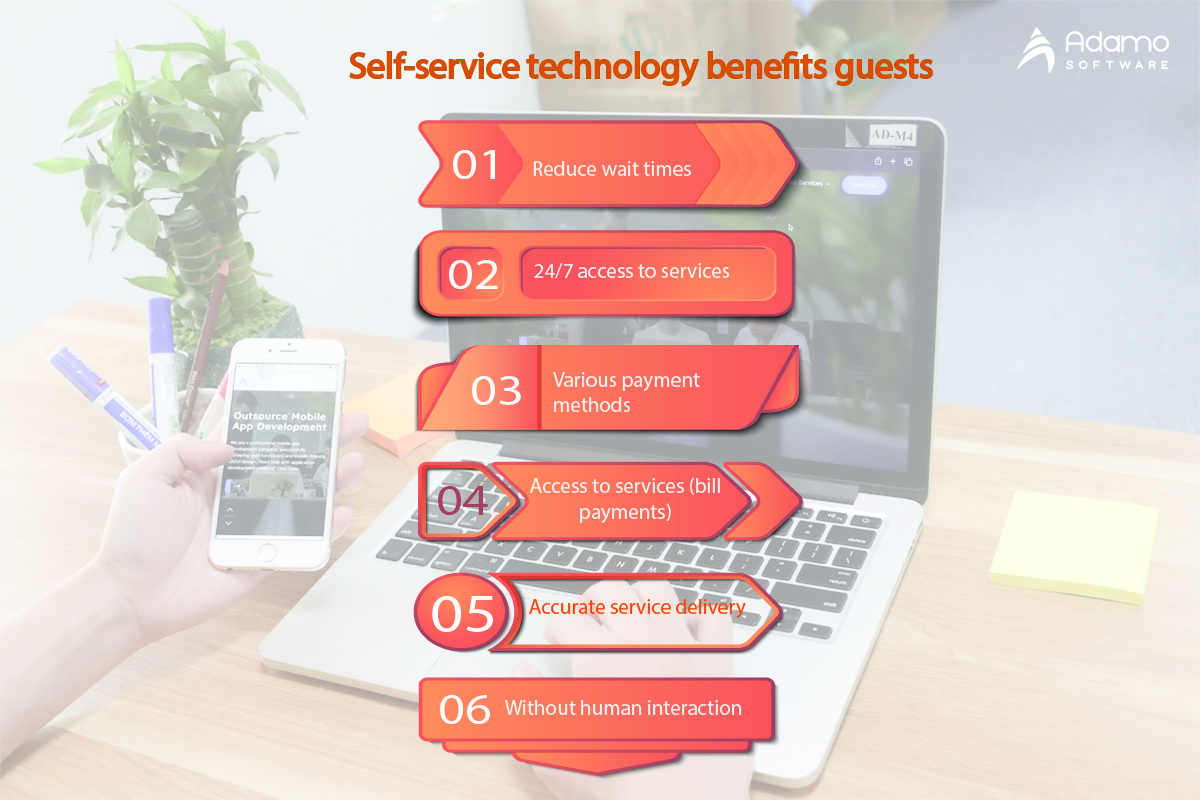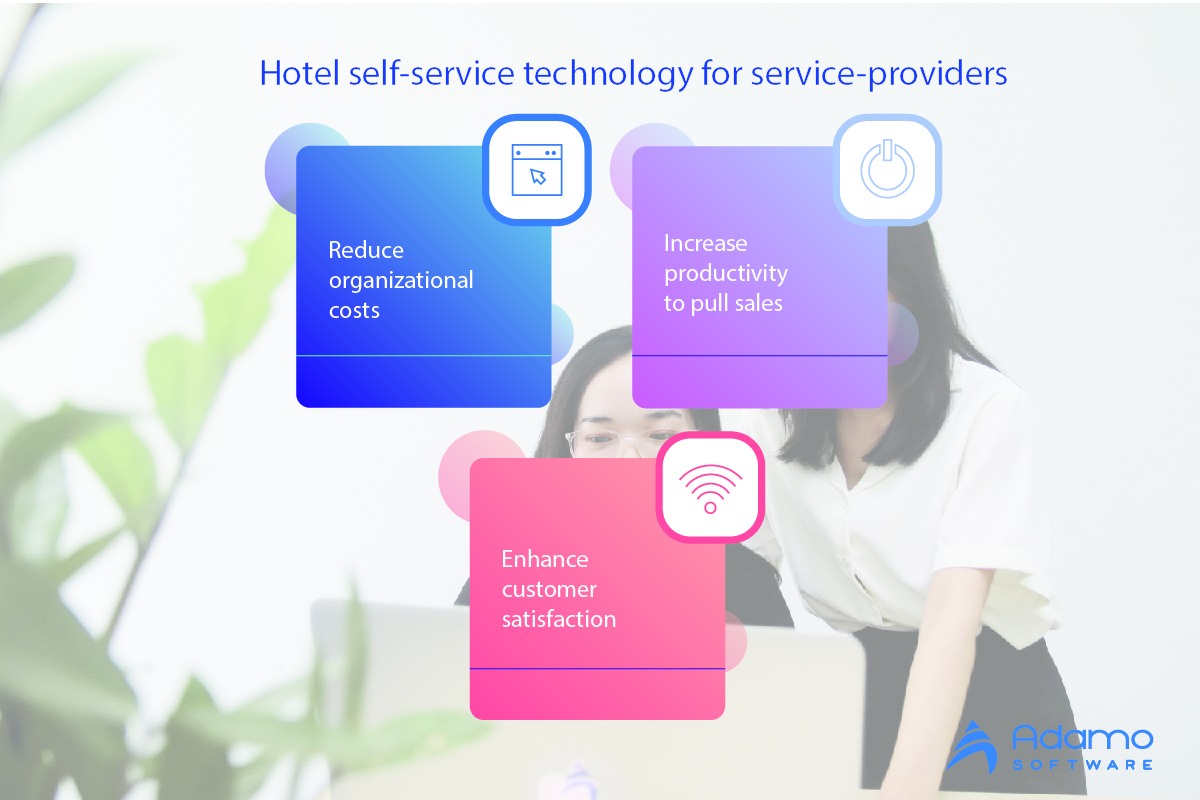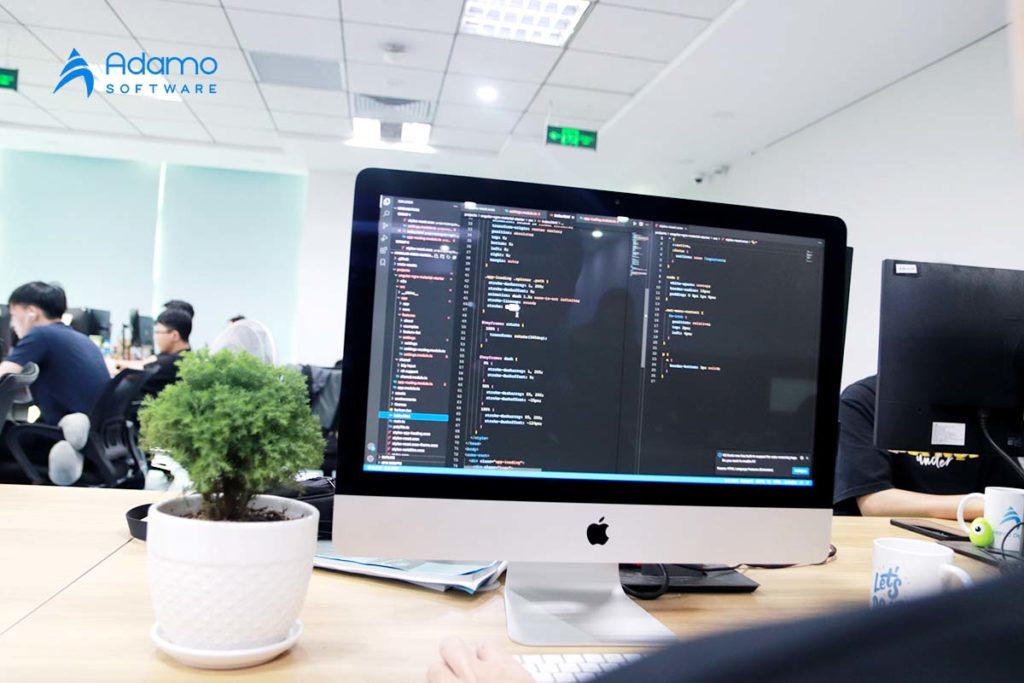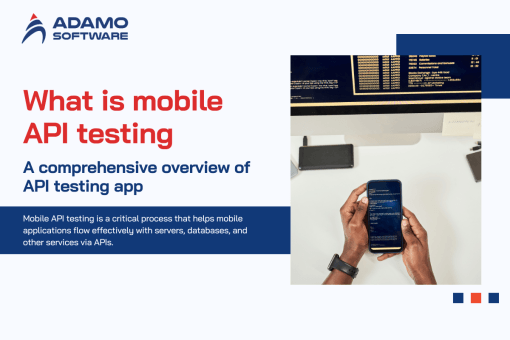Self-service technology as competitive advantage for hotels

The hospitality industry has faced challenging problems during the pandemic. Hospitality technology helps solve problems with self-service technology.
In a technology-driven world, there is no doubt that the hospitality industry has surged over the last decade. Hotels have executed self-service technology into their services to keep up with the latest technologies and provide customers with excellent experiences. Self-service technology allows guests to check in without entering the hotel.
The hospitality industry is about a luxurious and excellent customer experience, so it is no wonder that many hotels have set up self-service technology in their properties. Applying the hotel self-service technologies, hotels want to offer guests flexibility and convenience during their stay. More importantly, hoteliers apply self-service technologies to their operations to gain competitive advantages over rivalries. Do you wonder how hoteliers use self-service technology in industry operations? Outsourcing software development services work with hoteliers to create apps to update the latest technologies and provide customers with excellent service. Keep reading for further details.
What is self-service technology?
Self-service technologies (SSTs) are technological interfaces that enable consumers to produce services without a direct service employee’s involvement.
Self-service technology helps eliminate the need for human interaction to complete a business transaction. Self-service technology helps reduce the need for person-to-person communication to enhance speed and efficiency. For example, people use kiosks in their accommodation properties to improve guest experiences during their stay.
Self-service technology has been more than a new trend in the hospitality and tourism industry to start in the past two decades. Mobile check-in kiosks for airlines and hotels, online bookings and reservations, and mobile apps for booking are outstanding examples of self-service technologies.
Self-service technologies for the hospitality and tourism industry increase guest satisfaction and reduce labor costs. More importantly, the significant thing of self-service technologies caters to travelers that take the whole market. Offshore development teams cooperate with hotel operators to develop custom apps using self-service technologies.
Benefits of self-service in the hospitality industry: for guests and hotels
We’ve listed some of the best advantages of self-service technology in hospitality industry for both guests and service providers.
Self-service technology benefits guests

_ Reduce wait times
_ 24/7 access to services
_ Accurate service delivery
_ Various payment methods
_ Access to services such as bill payments
_ Without human interaction
Hotel self-service technology for service-providers

Reduce organizational costs
Hotel self-service technology helps reduce costs for organizational operations. For example, self-service kiosks cost thousands of dollars for organizations. It helps save costs on property insurance, utilities, employee training, salaries, furnishing, and equipment and maintenance. Outsourcing software development services use self-service technology to reduce organizational costs.
Increase productivity to pull sales
Besides cost savings, self-service technology helps you generate more sales, for example, more room rates. An omnichannel experience helps hotels offer various digital. Thus, hotel properties can attract a more extensive guest base. Using self-service technology helps hotel staff have more free time and focus their efforts on meaningful tasks.
Besides productivity increases, hotel staff stop learning new skills so they have more free time and perform more demanding tasks that will test their skills. Self-service technology helps hotel properties boost their productivity during their stay.
Enhance customer satisfaction
Guests use self-service technology in a hotel or any accommodation, leading to customer satisfaction. Guests will become more independent and take control of their transactions. So many hotels hire outsourcing software development services to create custom apps to boost guest satisfaction. When collecting data, what can hotels do with this data? Hotels develop algorithms to customize guest experiences like never before. It helps nurture long-lasting guest relationships and loyal guests.
Hotel self-service: Trends & a few examples

Hotel self-service technology: The Next Frontier Of Hotel Operations
New self-service technology coincides with guest expectations to control every aspect of their experience. For instance, hotels set up kiosk systems that allow guests to check-in and check out at various times while using mobile concierge services during their trips. The presence of self-service technology enables guests to have control over their stay from departure to arrival.
According to Hospitality Times, 70% of business travelers and 53% of leisure visitors use mobile devices to access travel-related information (2013). Self-service technology in the hospitality industry provides a transparent view of hotel facilities and services.
Hotel self-service technology offers various types of hospitality services and an opportunity to have full-service marketing without any marketing budget. Hotel self-service technology provides guest satisfaction and also increases brand awareness.
Moreover, self-service technologies help hotels increase visibility. Thus, many outsourcing software development services will use self-service technology in custom apps to enhance guest experiences. Mobile apps using self-service technology increase convenience and spending with guest satisfaction. Hotels embracing mobile apps have experienced an increase in revenue from 15% to 25% through room service, mobile ordering, and hotel facilities.
Self-service technology examples: outstanding examples
Self-service technology has become essential for hotel operations if they improve their customer service. In 2015, Hilton launched a custom app that allows guests to use their phones to open doors, change room climate, request services, etc. Besides, this self-service technology is functional for guests staying on floors without housekeeping service.
Hotel automated services: No touch check-ins and check-outs
People arrive and depart each day in a hotel, so it requires a lot of staff to complete all tasks. Many hotels use check-in and check-out kiosks to complete this process by themselves. A recent development is the presence of hotel custom apps. Guests can automatically check-in and out without queuing or asking receptionists if they download mobile check-in on their phone.
A recent report states that 62% of people prefer a hotel app using self-service technology. The hotel app improves customer experience by cutting out waiting times. It also encourages brand loyalty. Using hotel automated services is one of the most outstanding self-service technology examples for most hoteliers.
Also read: What makes mobile check-in beneficial for business operation
Contactless room access: Introduce digital keys
If hoteliers want to provide guests with a contactless stay during their stay, they will introduce digital room keys. The self-service technology example allows guests to unlock their hotel rooms with a smartphone. It helps save time for check-ins and personalizes their experiences during staying. Hoteliers hire offshore development teams to apply self-service technology to their operations.
Hotel Friend Concierge App is a great self-service technology integrated with SALTO KS. It allows hoteliers to provide guests with convenient mobile room access without using keys or cards that could sometimes be easily lost.
In-app orders: Emerging trends for hotel operations
Hospitality technology has played an important role in changing the whole hospitality industry. Most guests prefer ordering food directly to their hotel rooms, especially the digital nomads. They can have their meals served in their room without interacting with hotel staff.
With increasing demands, guests order any service or items from the menu and pay with a click. For example, Gastronovi is another self-service technology that allows restaurant and hotel operators to create contactless payment experiences for their guests.
Besides, they offer guests quality services such as booking a room directly from the cash register, transferring bills, and more. Moreover, offshore development teams can design mobile apps with various features: QR codes, convenient communication with staff through live chat, other special guest offers, and more.
Regarding restaurants, self-service technology supports quick and easy food delivery services. The touch-screen food ordering interface makes it simple to boost orders quickly and effectively. In the past, guests had to wait at a counter or order through a phone. However, they sit down and relax while restaurants prepare their orders.
The Bottom Line
Self-service technology has no doubt made hotel stays more accessible and convenient for travelers. It also saves costs and money for hotels and restaurants, forcing them to focus on providing excellent service and food options for their guests. Hospitality technology has not only changed the way hotels and restaurants operate but also how they treat their customers. As a travel and hospitality software development company in Vietnam, Adamo Software is active to bring lucrative travel solutions for hotels.











